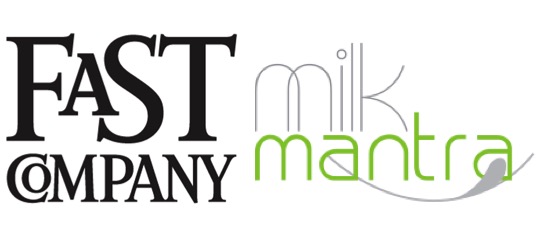While China remains a powerhouse of innovation in Asia-Pacific—both Tencent and the Alibaba-backed cold-chain logistics startup Cainiao are on our list—companies across the region found game-changing solutions to difficult problems. South Korea’s Seegene helped the world diagnose the novel coronavirus quickly and effectively. India’s MilkMantra allowed the country’s small-scale dairy farmers to bring their products to market, while ensuring quality control. And Australia’s ProAgni has cleaned up the food chain by developing antibiotic-free supplement for cattle and sheep. Read on for more of this year’s best in Asia-Pacific.
1. SEEGENE
For producing a COVID-19 diagnostic test and taking it global, sending more than 55 million test kits to 67 countries
The biotech built a molecular diagnostic test for the COVID-19 virus, which helped South Korea contain the virus in the spring of 2020: 80% of South Korean COVID tests taken in April were made by Seegene. As the coronavirus spread, the company went global, sending over 55 million test kits to 67 countries.
2. MILK MANTRA
For partnering with USAID to launch an initiative that lets small-scale dairy farmers access their payments digitally
Odisha, India-based Milk Mantra sources, packages, and sells dairy products to more than 10,000 independent retailers and subscribers. The company works with farmers to process and test the milk to control product quality. This year Milk Mantra partnered with USAID to launch an initiative to let farmers access their paychecks digitally (previously, some had to travel long distances to access their finances). Milk Mantra also reduced its payment cycle to five days—from 10—to help farmers access their funds faster and avoid disrupting their operations.
3. POLICYBAZAAR
For insuring against job loss and helping those who do get laid off repay their loans
In response to COVID-19-related layoffs and furloughs across industries, India’s largest insurance aggregator launched a job loss insurance vertical. The vertical offered coverage for those who lost their jobs in layoffs, helping them pay off loans for up to three months. It also covers those who can’t work due to an injury, disability, or death giving them salary benefits for up to two years.
4. TENCENT
For advancing the utility of social media, particularly in search, payments, and shopping
Tencent added several new features on its social network, financial platform, and gaming business WeChat, which counts 1.2 billion users. Now users can find services and content across the network by pressing a word in a chat conversation. Tencent also broke up its payments app, WePay, into different verticals including Financial Services, Travel and Transportation, and Shopping and Entertainment. Under Shopping for example, users can access mini-shops—virtual storefronts from independent retailers vetted by Tencent—and shop via livestream, an increasingly popular option for Chinese consumers.
5. NEXTBILLION.AI
For driving logistics companies to succeed in the last mile, via custom AI-based maps
Started by two Grab alums last February, Singapore-based NextBillion.ai builds other AI-based hyperlocal services for companies. The company has started building custom AI-based maps to help last-mile logistics companies and freight companies provide accurate delivery and pickup ETAs and find the best routes. The company aims to expand its services and incorporate natural language processing and facial recognition.
6. PROAGNI
For converting livestock feed into profits for farmers, and removing antibiotics from the food chain
ProAgni makes antibiotic-free supplements and feeds for cattle and sheep. The company’s feeds have improved feed conversion (the process of converting food into weight) by 20%, leading to bigger profits for farmers as they need less feed for their animals. Its products have fed more than a million livestock animals in Australia and taken more than one tonne of antibiotics out of the food chain.
7. DRINKPRIME
For providing clean drinking water via a purifier subscription model
DrinkPrime supplies subscription-based smart water purifiers in India, where unclean drinking water remains a common problem (about 35% of the country’s city-dwellers buy drinking water stored in bubble-top containers that don’t meet government safety regulations). Users subscribe to receive water purifiers connected to an app that lets them pay bills and monitor how much water they use. Because the company operates as a subscription service—plans start at around $5—customers do not have to pay installation costs and maintenance charges.
8. MERCARI
For building currency in the secondhand market through a digital payments program
Mercari is Japan’s largest online marketplace for second-hand goods. Usage soared last year as people who were stuck at home during the pandemic turned to the mobile-first platform to sell their belongings and reduce clutter (a trend inspired by Marie Kondo). The company introduced digital payments called Merpay in 2019 in partnership with NTT Docomo, Japan’s biggest wireless carrier. Merpay now has more than 7 million monthly active users and is accepted at over 1.6 million stores. Though Mercari’s user base is relatively small, it has an advantage in the payments sector: Many customers already hold Merpay balances as a result of selling possessions on the app.
9. CAINIAO
For making vaccine delivery—via the first cold-chain air freight service—smooth as ice
The smart logistics arm of the Alibaba Group partnered with Ethiopian Airlines to accelerate the first COVID-19 vaccine shipments with the first cold chain air freight service. The new route is able to handle temperatures as low as -23 degrees Celsius, cold enough for most vaccines that need to be refrigerated, including COVID-19.
10. AMOREPACIFIC
For exfoliating plastic from its beauty product packaging and opening a refill station
Last year, South Korea’s beauty conglomerate Amorepacific started rethinking its packaging across its internationally popular brands that include Etudehouse, Laneige, and Innisfree, designing new packaging to reduce its use of plastics. Innisfree, for example, launched an eco-friendly version of its Green Tea Seed Serum made from a paper bottle, reducing the product’s plastic content by more than half. The company also opened Korea’s first beauty refill station, where customers fill containers made from coconut shells with products of their choice, and pay by weight.
Source : Fast Company Mar/Apr 2021 issue

